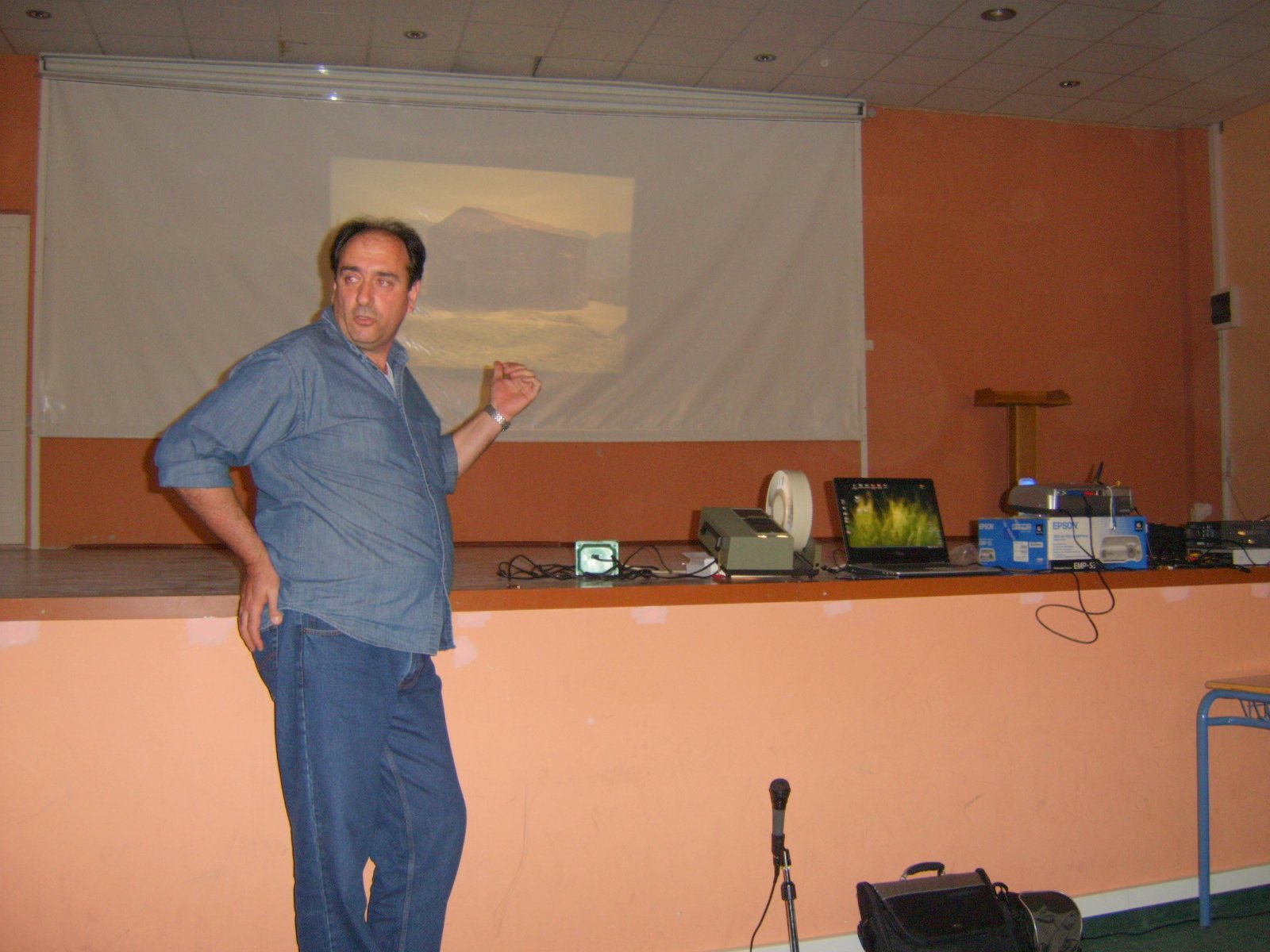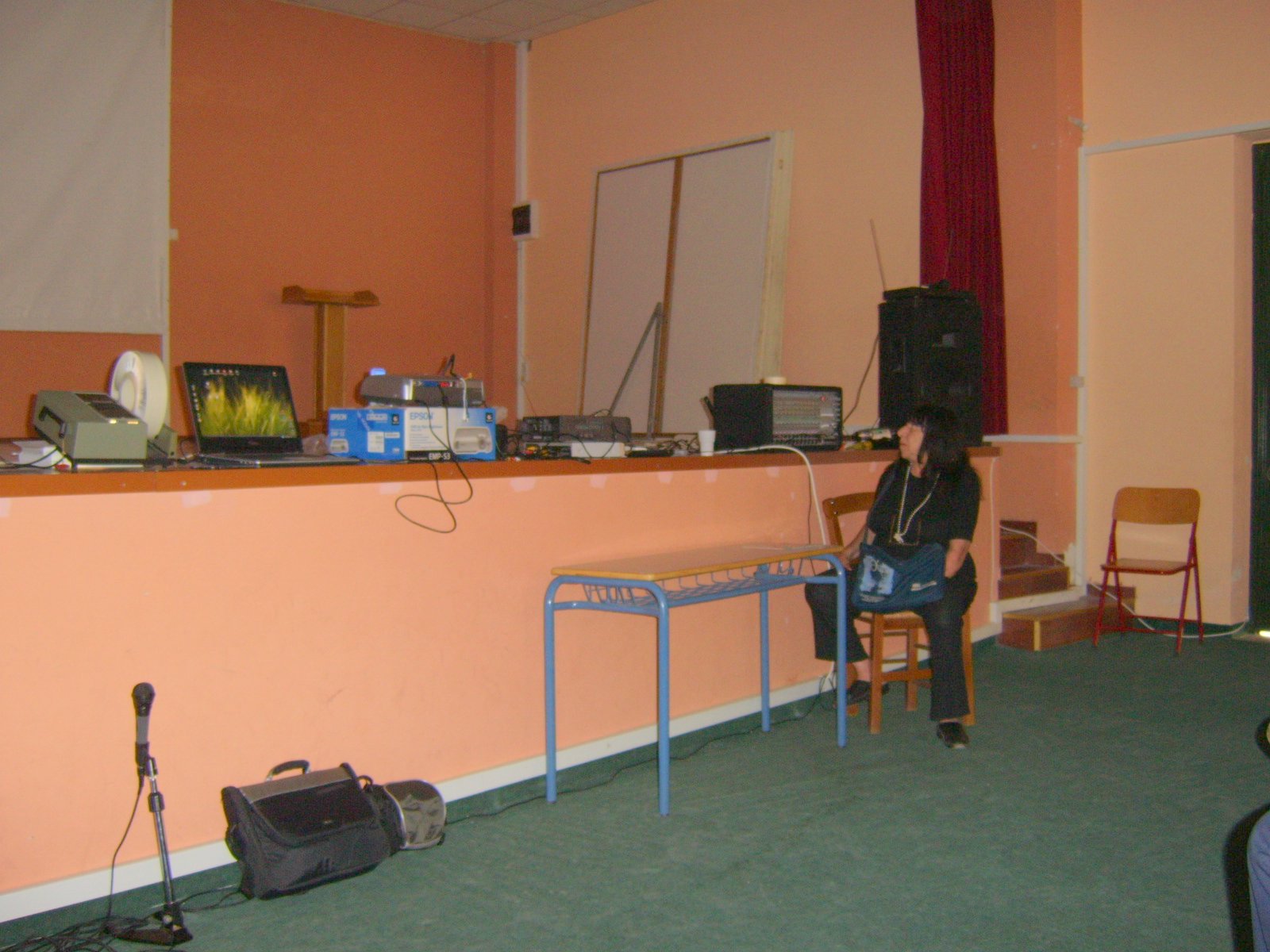Cretan resistance during WW II
The famous tree in the courtyard of the municipality of Kastelli
That amazing tree *
If this tree cannot recall the many tears since World War II,
Clouds shall continue to shed their rain coats to let out of the blue
Children huddle together to sing songs to a far away moon.
In memory of those who had gone before their day.
It is always difficult to find the right words but poets show
That human pain shall not to be forgotten in war diaries.
Picasso did something so that Guernica shall remain with us,
But after Auschwitz, Rwanda, Dafur, or former Yugoslavia
Who has still the strength to speak out with a human voice?
Foucault said we have to discover the places of silence
Before the political protest shall cover them up like monuments
Which proclaim heroic deeds at war and do not let people speak.
And although their throats may be dry and their hands quiver,
True greatness makes itself felt when man or woman, child or aged person
Even just stutter out some words in recognition of human humbleness.
Hatto Fischer 4.4.2006
* That tree standing in the court yard of the Municipal building was used by the Germans to hang resisters during Second World War
Lecture about Kastelli and Crete during Second World War
Katerina Anghelaki Rooke translating *
The story of resistance against the German Occupation during World War II was linked to Kastelli in numerous and curious ways. Apparently the German officer who organized the crack down in Crete once resistence fighters had managed to kidnap a German general, he ended up staying in Kastelli after Second World War had ended. It is one of these strange turn abouts just like the story about a Hungarian girl which was taken to Auschwitz and who ended up opening up there her practice as a doctor. Upon being freed from the concentration camp, no one came to claim her. Red Cross attempted to find any of her relatives but to no avail. It can be supposed that a vague hope one day someone would come in search of her and thus she wanted to stay nearby to Auschwitz just in case. As for that German officer, no one could explain his motive.
There are many other strange stories, one told by Werner Henne from Berlin. He went quite often to Crete since his grandfather had served with the German army in Crete, but because he had helped many Cretans to escape or not to be executed, he was betrayed during the last few days of the war and executed himself.
When Werner and his son stayed at a hotel, he found a strange group of men being there at the same time. They were all from Germany. With time he found out who they were. All of them had served in the German army, and he suspected some of them even the SS. They were the Germans with whom he would not like to have anything to do with. Why they would return to Crete, that is another story.
One day, Werner Henne met a Greek taxi driver who told him following story. One day this man was on his way to the camp where the Italians were held quasi prisoners by the Germans after Italy under Mussolini had opted out of the war. The Italians had cigarettes and other privileged things while the Cretans had food. So they went often in exchange for these other goods. This man wanted to do the same but then was caught suddenly when walking through the forest by a German officer who was accompanied by two soldiers. Once it was clear what was his intention, the German officer ordered him to kneel and stripped him of his shirt. Then he ordered that the two soldiers whip him on his back so many times that he started to bleed. They left him lying helpless on this path through the forest. Many years passed and as said already, this man became a taxi driver. One day a German with his wife climbed into his car and asked to be driven to that spot in the forest. The taxi driver recognized the man. He was that same officer who had him whipped. Yet he did not say anything and drove them to that said spot. Once there, and after having halted the car, he turned around to face the two and without saying a word, he ripped off his shirt. He then showed the scars on his back to the wife of the man, and said to her: "I suppose your husband never told you the full reason why he wanted to show you this spot, but see my scars, this is what he did. See!" After a pause, he told them simply in a very quiet way: "now get out of my car!" They did. He left them there standing. Once back in the village, he reported the incidence to the local police. They inquired what happened. After returning finally on foot to the hotel, they checked out immediately, never to be heard of again.
As for some efforts of redemption, there is the art work by Karin Raeck who did an anartes sculpture on the plain of Anoia, and helped create a museum dedicated to this resistance. See reference to her work in:
Falling for Icarus: A Journey Among the Cretans - Page 304
Some general information can be obtained on Wikipedia:
"The Cretan resistance (Greek: Κρητική Αντίσταση) was a resistance movement against the occupying forces of Nazi Germany and Italy by the residents of the Greek island of Crete during World War II. Part of the larger Greek Resistance, it lasted from May 20, 1941, when the German Wehrmacht invaded the island in the Battle of Crete, until the fall of 1945 when they surrendered to the British. For the first time during World War II, attacking German forces faced in Crete a valiant resistance from the local population. Cretan civilians picked off paratroopers or attacked them with knives, axes, scythes or even bare hands. As a result, great casualties were inflicted upon the invaders, which made Crete the swansong of German paratroopers."
Source:
http://en.wikipedia.org/wiki/Cretan_resistance
Further sources:
Penelope I. Doundoulaki
Penelop I. Doundoulaki has written seven books about the history of Crete during Second World War, and she traces this from Crete to Auschwitz. In a key statement, she would explain what shall be needed for redemption to work:
"Greece is not the only place in the world to be suffering from foreign interventions. This country has been unlucky enough to have a strategic [Key] geographic position, among other things. As far as somebody can remember it has been for ages part of colonization by different empires, due to this or that advantage.
Sometimes it comes almost as expected that everybody feels angry, when realizing how many people are suffering around and how much this deepens from day to day. Somebody could easily think that I am "speaking dragons", but this is not at all so. My work brings me every day to confront situations that would be difficult to imagine.
Conciliation with wounds of the recent History could be of "specific weight" if both parts proceed with clear heart and vision. Here stands the question to be asked" Had been Holocausts in Crete and the whole Greece, or not". If this would be answered sincerely, then conciliation would be much more easy."
Source: Tue, 18 Jun 2013 18:54:01 +0300, ΠΗΝΕΛΟΠΗ ΝΤΟΥΝΤΟΥΛΑΚΗ wrote:
- -"Memory and Ashes" [History of years 1941-1945 in Crete through narrations, 2004, 1st Volume of Anniversary Series published by the Prefecture of Chania ]
- -"Memory and ashes" [History of the years 1941-45 in Crete through narrations,2005]
- -Memory and Ashes" [History of the years 1941-45 in Crete through narrations, 2006]
- -"Memory and Ashes" [History of the years 1941-45 in Crete through narrations, 20007]
- -Memory and Ashes [History of the years 1941-45 in Crete through narrations, 2008[
« Opening ceremony | With poetry against war »



